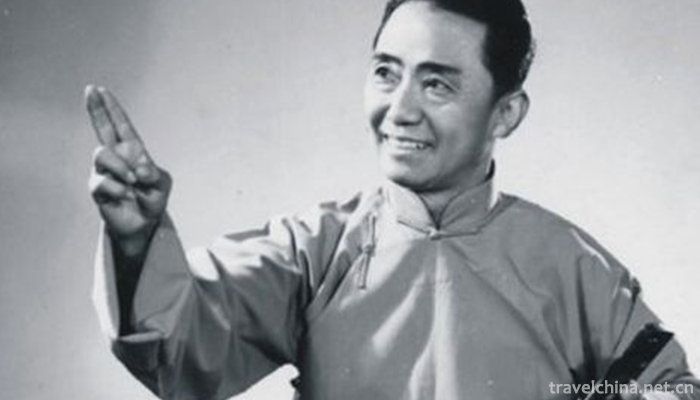hubei drum
hubei drum
The original name of Hubei drum is "drum book", also known as "drum storytelling" and "drum Beijing tune", etc. It is a traditional rap art popular in Xiaogan, Huanggang and Wuhan. In 1950, the name of the Great Drum in Hubei Province was named, and it was widely circulated in Hubei Province.
On June 7, 2008, the "Hubei Drum" jointly declared by Wuhan City and Tuanfeng County of Hubei Province was listed in the second batch of national intangible cultural heritage list with the approval of the State Council.
historical origin
The original drum script in Hubei has the same clan relationship with the traditional drum-ci-type rap art in northern China, and the drum-ci (drum script) is closely related to the story-telling (commentary) in history.
When Buddhism prevailed in the Tang Dynasty, believers not only talked and sang Buddhist scriptures and historical stories, but also talked and sang about folk incidents, such as "Qiuhu Novels" and "Chang Yichao Bianwen". By the Song Dynasty, from "Bianwen" to drum ci, there were some professional scripts. After polishing and processing by literati, these scripts have a higher artistic quality. From Ming Dynasty to Qing Dynasty, drum lyrics became more and more popular in the north and gradually spread to the south.
The history of Drum Books in Hubei Province is rarely recorded in the official history. From the inheritance relationship between drum calligraphers and apprentices, it can be inferred that in the late Qing Dynasty, drum calligraphers were well-known performers and apprentices. It must have lasted longer before that. Among them, the early famous artist Ding Haizhou (Ding Tieban) is said to have come from Shandong Province to Wuhan, Hubei Province to make a living by offering art. He taught five apprentices, including Huangyushan, Pan Hanchi, Wang Mingle, Chen Qianwen, Zhang Mingzhi, Fu Qungang and Hu Wei, who have experienced eight generations of inheritance. At the same time, there are also some famous artists of Gushu such as Wei Yuanzong (Weiguangshan), Liu Yuanzhong (Liu Huangchuan) and Gong Boting, Liu Yuanpeng in Henan Province.
Gushu artists from the north still keep the characteristics of northern drum lyrics when they sing. They use the northern accent, hold two crescent-shaped steel sickles (or iron, copper) in one hand, and stick wooden sticks in the other hand to beat drums and sing. Later, in order to be easily accepted by the people of Hubei, their disciples gradually switched to the Hubei accent and changed their singing tune, gradually adopting the local people's favorite tune. Then, the steel sickle was gradually replaced by cloud plate, the big drum was replaced by the small drum, and the rap was also welcomed by the local people with a local accent, and the popularity was becoming wider and wider until the vast areas of Wuhan, Eastern Hubei and Northern Hubei. In this way, Drum Book took root, blossomed and finalized in Hubei Province, and became an important kind of music in Hubei Province.


-
1.Fuping Pottery Art Village
Pottery Village is located in the north of Fuping County. It relies on the site of Tang Dingzhou Kiln. It is a cultural and custom experience scenic spot consisting of a quasi-three-star hotel, three
Time 2019-01-12 -
2.The Twin Colossals
Shuangta Mountain is located ten kilometers southwest of Chengde Summer Resort in Hebei Province, with a total area of 3000 hectares and beautiful scenery. It is the largest natural scenic resort in C
Time 2019-02-08 -
3.Imakan of Hezhe Nationality
Imakan is a unique rap art of the Hezhe people in Northeast China. Its performance form is a combination of one person's rap and singing. It has no accompaniment with musical instruments and uses the
Time 2019-05-03 -
4.Custom of sacrificing ancestors to the great locust tree in Hongdong
During the period from Hongwu to Yongle in the Ming Dynasty, an unprecedented migration took place under the great locust tree in Hongtong. It lasted 50 years and moved 18 times
Time 2019-05-03 -
5.Miao folk songs
According to its content, Miao folk songs can be divided into Youfang song (love song), wine song, bitter song, anti-song, funeral song, labor song, political song, children's song, riddle song and so
Time 2019-06-05 -
6.Ningjin Acrobatics
Ningjin acrobatics is one of the traditional folk acrobatics in Shandong Province. With its long history of development, extensive mass base, profound cultural heritage and exquisite performing skills
Time 2019-06-08 -
7.Sheng Guanyue
The term "Sheng wind music" is not only a popular name in Chinese folk, but also a scientific name in the current academic circles. It refers to the orchestral performance form consisting of
Time 2019-06-14 -
8.Beijing University Of Agriculture
The predecessor of Beijing University of Agriculture, Tongxian agricultural school, Hebei, was founded in 1956. In 1958, Tongxian agricultural school in Hebei province was merged with Beijing agricult
Time 2019-09-06 -
9.Capital University of Economics and Business
Capital University of Economics and Trade was founded in 1956. It was a key university under the municipal authority of Beijing, which was merged and established by the former Beijing School of Econom
Time 2019-09-22 -
10.Huangshan University
Huangshan University, formerly known as the Huizhou normal school, was founded in 1978. In December 1997, it merged with the Huizhou Junior College of University of Science and Technology of China. It
Time 2019-11-17 -
11.Longmenshan earthquake site park
This entry is lack of information column, supplement the relevant content to make the entry more complete, but also can quickly upgrade, come on! The site earthquake park includes the widely spread ruins of Xiaoyudong bridge
Time 2020-11-05 -
12.Administrative division of GuanganTime 2020-12-19